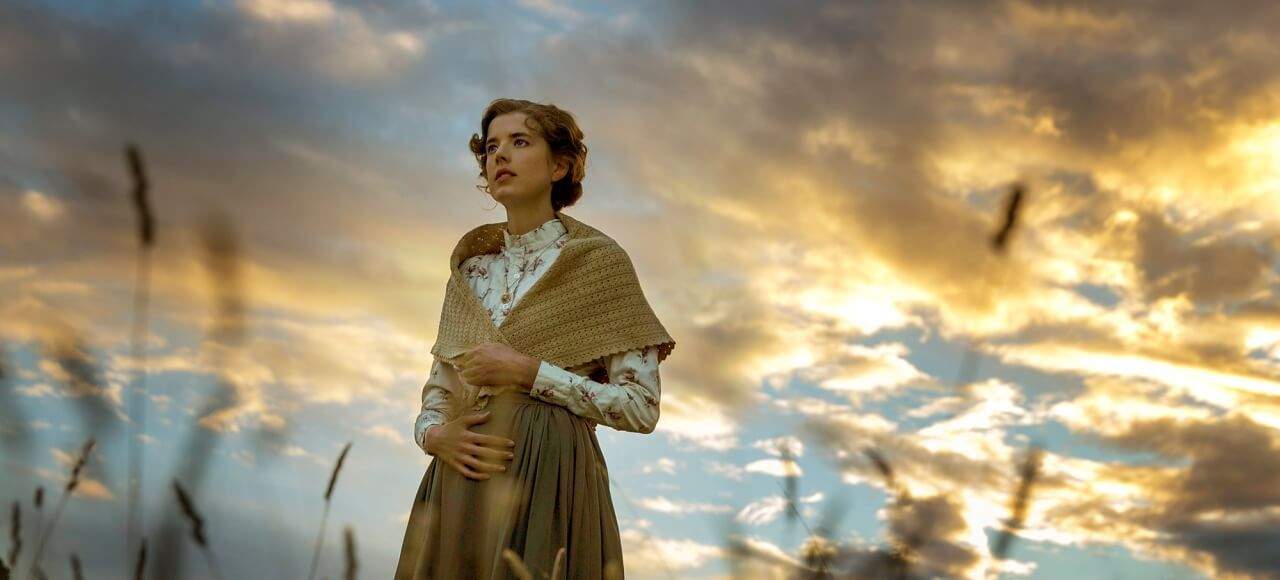Sunset Song
A patient, painterly drama from master filmmaker Terence Davies.
Overview
When Sunset Song opens, Chris Guthrie (Agyness Deyn) reclines in a field of wheat, her golden locks matching the crops around her. The young Scottish woman both stands out and blends in — and as her gentle narration tells of her heart beating in this land, it's clear that no other option is possible. Just as the ground around her will be plucked bare during the harvest and then grow another bounty, repeating the same cycle over and over again, so will her tale continue to wither and blossom. Chris is the daughter of a farmer, and as resilient as the rural patch of earth she can't tear herself away from.
It's that concept of strength and endurance that sits at the heart of Terence Davies' latest feature, which the writer-director adapts from the 1932 Scottish novel of the same name. Time passes, as the filmmaker stresses in the changing colours of his nature-filled visuals, in circular shots that sweep around the property, and in elegant transitions between pivotal moments. And still, as both tragedy and happiness flavour Chris' days, she remains.
Set in the early 1900s, the particulars of the plot test that notion, starting with Chris' cruel father (Peter Mullan). When he's not imposing his might upon Chris' brother (Jack Greenlees), he's forcing himself upon her mother (Daniela Nardini) and creating more mouths to feed as a result. After a series of tragedies, it's his shadow Chris tries to escape – not by giving up her home, but by bringing it back to prosperity. Then she starts to notice local lad Ewan (Kevin Guthrie). But just like everything around them in a time characterised by poverty and blighted by the Great War, their romance will change with the seasons.
With the quiet, devastating The Deep Blue Sea the last listing on Davies' resume, the British filmmaker is no stranger to simmering stories that whisper their emotions. In fact, his 40-year career is full of them. Sunset Song doesn't shy away from its condemnation of the ways in which men shape Chris' existence, nor from celebrations of her determination to fight to make her own choices. Nevertheless, his approach remains as subtle and low-key as ever. Indeed, it's his masterly way of drawing strength from episodic events and understated sentiments that makes the sensitively crafted film seethe with such potency.
The patient pace and painterly images mark the feature as one of Davies' best, but it's his perceptive casting choices that likewise prove pivotal. Better known as a model, Deyn brings a composed but never passive or impenetrable air to her protagonist that couldn't encapsulate the underlying narrative better. Guthrie's previous screen credits may be similarly sparse, but there's a sense of rawness simmering within his character's struggle to choose strength over weakness. Never dwarfed by Mullan's intensity, together their performances capture just the balance of harshness and beauty that this moving tale demands.





